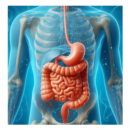Are you a sugar addict? As with most addictions, by the time people ask this question, the answer is usually yes. A simple way to tell? Stay off sugar for two to four weeks and see how you feel.
In the United States, where about 18 percent of the standard diet comes from added sugar—sugar addiction is becoming the rule rather than the exception. Many people eat their weight in sugar every year.
And sugar may very well be why you are tired, achy, “brain fogged,” anxious, and unable to lose weight.
Some chronic medical problems associated with excess sugar in our diet include metabolic syndrome with high cholesterol, obesity, hypertension, and heart disease. And this is the short list. The actual list could go on for pages. In fact, research from the American Heart Association suggests that sugar contributes to over 180,000 deaths each year.
Sugar addiction is a vicious cycle.
Meanwhile, in what is a remarkable example of corporate cynicism, people who have sugar-induced irritability are being told to eat more sugar. Candy bar ads have even coined the term “hangry,” when in reality eating a candy bar or drinking a sugar-packed soda is the worst thing you can do to address hunger and irritability. Because although you feel better initially as blood sugar rises, the rebound drops in blood sugar make the problem worse just a half-hour later—putting you on an emotional “sugar roller coaster.”
As most people have found, simply trying to cut out sugar usually does not work very well. In addition, who wants to cut out things that give you pleasure? If you live a long life because you’ve cut out everything you enjoy, is it worth it? The answer, as Mark Twain so beautifully put it, “Moderation in all things, including moderation!” It is OK to enjoy sugar, and chocolate actually is a health food. The trick is to do so in small amounts instead of because you are craving it.
There are four types of sugar addiction.
Sugar cravings are driven by a number of factors, and we find that there are four main types of sugar addiction. The most critical thing is to address the source of the sugar cravings. Because when you do this, the sugar cravings go away and you will feel much better. When three or four of these sugar addiction types are present in the same person, I usually find that they either have developed (or are on the verge of developing) fibromyalgia.
1. Fatigue causing you to reach for sweets.
Sugar is an energy loan shark. It gives a quick energy fix, but then triggers adrenaline releases that burn energy while making you anxious. My free Energy Analysis Program can show you how to optimize your healthy energy.
2. You experience severe irritability when hungry.
This reflects inadequate adrenal function. The job of the adrenal hormone cortisol is to keep sugar from dropping too low during stress. When people have “adrenal fatigue” from the stress of modern life, cortisol stress hormone response is inadequate as blood sugar plummets, allowing the drops in blood sugar. Fortunately, this can be helped dramatically with nutritional support including vitamin B5, adrenal glandulars, vitamin C, and licorice.
3. You have sugar cravings without the “hanger.”
A group that I call the “Happy Twinkie Hunters” tends to be associated with Candida/yeast overgrowth in the gut. Other markers of this include nasal congestion and irritable bowel syndrome. These cravings and problems go away when the Candida overgrowth is treated.
4. You have anxiety and depression associated with perimenopause.
People learn to reach for sugar because it increases tryptophan moving into the brain, which raises serotonin levels. Serotonin has been called the “happiness molecule.” Unfortunately, over time excess sugar causes this response to get blunted (because of insulin resistance) so that the sugar actually causes excessive anxiety and depression. If this is you then you tend to reach for a glass of wine at night. A hormone check up is a good idea
And so, if you practice moderation, address underlying health issues, and pay attention to what’s in your food.
Article by
Jacob Teitelbaum, M.D., is one of the most frequently quoted integrative medical authorities in the world. He is the author of The Complete Guide to Beating Sugar Addiction. Dr. Teitelbaum appears often as a guest on news and talk shows nationwide including Good Morning America, The Dr. Oz Show, Oprah & Friends, CNN, and FoxNewsHealth. Learn more at Vitality101.com.











